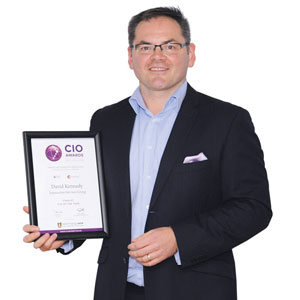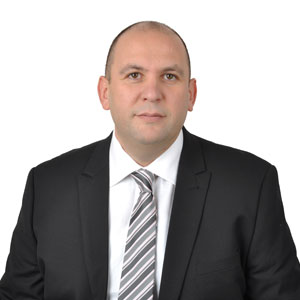THANK YOU FOR SUBSCRIBING

How does a CIO build a world class Salesforce.com Support Team?
Velu Palani, Enterprise Salesforce.com Architect, Mentor, Suburban Chicago Salesforce.com Developer


Velu Palani, Enterprise Salesforce.com Architect, Mentor, Suburban Chicago Salesforce.com Developer
I have been a customer of Salesforce.com since 2000 and I’ve implemented and supported the salesforce.com business platform in sales, service and marketing environments.
Salesforce.com is a business platform and it is implemented to help business grow by generating the right leads, closing opportunities in a timely manner and providing superior support to customers.
Salesforce implementations are performed by external system integrators in collaboration with internal Business and IT teams. In the enterprise, most such implementations come with big budgets, are completed with reasonably good results, and the business starts using the system without wasting time.
What happens next?
If a project meets it original goals and business growth is impacted because Salesforce was implemented, why, what was the secret sauce? If the implementation is adopted by users and works to grow the business, it does so, because there has been alignment around People - Process - Technology.
Focus on the People That Deliver the Project.
For Salesforce implementations and support to work, the implementation and support teams require the right Competencies, Culture, Skills, Experience, Knowledge, and Qualifications. Traditional IT support organizations design and develop their teams based on roles: Project Managers, Business Analysts, Architects, Developers, and etc. IT management creates a delivery framework and starts working with their set of roles to deliver projects. Because, everyone focuses on project requirements and design, not the key objectives; and because they are focused technology, titles, and roles; things don’t go well and the internal CSAT (customer satisfaction score) is unsatisfactory. To make these projects work, focus on the people who make things happen.,
1.Culture: Salesforce.com platform revolves around growth, exceptional customer support, innovation, social, mobile and cloud approach. The culture of the support team must be aligned with that same approach. For example, team members should be educated to use social media to learn about their own customers, what others are saying about their organization, and not implement projects without context. CIOs should evaluate the culture of their current Salesforce.com team, educate and build a culture that aligns with the business, its customers, and the platform being implemented.
2.Competency: According to Wikipedia, Competency is a standardized requirement for an individual to properly perform a specific job. Competency allows an individual or team to think ‘How’ rather than ‘What’. Some of the common competencies are Analytical Thinking, Fostering Innovation, Global Perspective, Teamwork, Written / Oral Communication and etc. It is more than a skill, every Salesfoce.com support organization should evaluate itself in alignment with the need to communicate with the business side and to do so in the context of how the business side will actually use the platform. How will IT receive a high internal CSAT score from the business side, if the team members don’t have the right competencies to be able to align with the business side.
3.Experience: It is time to evaluate every team member’s experience. The support team should understand the need to have people who understand the business, the process of marketing, selling, and supporting their customers. It is all about People, Process and Technology. In other words, the technology experience is important but it is the third priority. Often, the support team talks more about the workflows, validation rules, classes, triggers, than the actual business processes. It is important to have technical teams that understand the business processes of selling and supporting. CIOs should take this into consideration when forming the support team; hire people with the right experience, and continuously monitor their performance.
Check Out: Top Salesforce Consulting Companies
4.Skill: Skill helps an individual to deliver pre-determined results. Analyzing the individual’s skills and constantly educating the individual should be part of the organization’s culture. Leadership needs to encourage and reward team members for their new skill attainments. Strong skilled professionals deliver results and improve internal CSAT score; keeping and motivating them to stay current is part of the leadership’s responsibility.
5.Knowledge:In any Salesforce.com environment, people need to have a narrow focus to deliver results. It is easy to be blindsided and to get out of touch with the eco system. Knowledge is all about what is happening outside of one’s organization and understanding the trends, tools and different approaches to solving specific challenges. Participating in the Salesforce community certainly will help improve one’s knowledge and keep one abreast of current trends.
6.Qualification:Certifications help the individual to speak the same language (terminology) and work effectively work with other team members. In addition to what college degree someone has; everyone in the team should be certified. I recommend that everyone should chose one or more of the certification tracks; Administration, Development, Implementation or Architecture. I strongly recommend that the team should posses certifications in addition to the basic qualification requirements. Imagine the benefits of speaking the same language and of actually knowing the platform one is supporting!
Instead of focusing on just the roles and titles of individuals, the leadership should focus on Competencies, Culture, Skills, Experience, Knowledge, and Qualifications. Developing a framework to build a team using the above criteria will lead to higher internal CSAT and ESAT (employee satisfaction) scores. This will enable the organization to grow, innovate and delight its customers.











